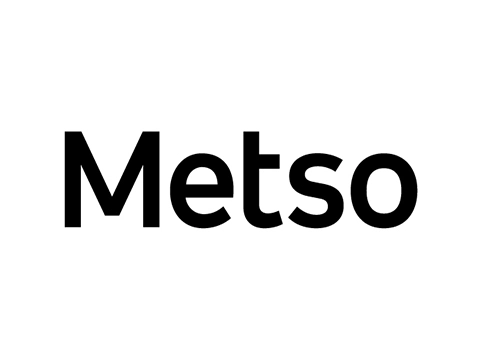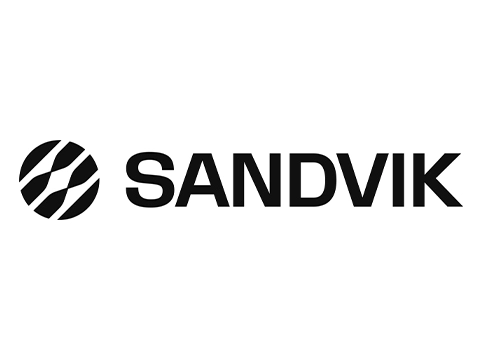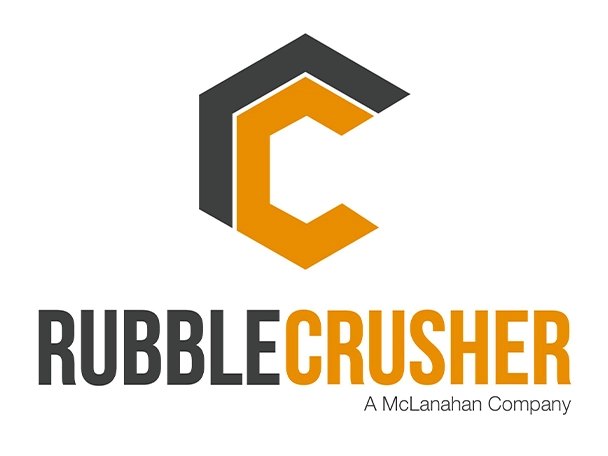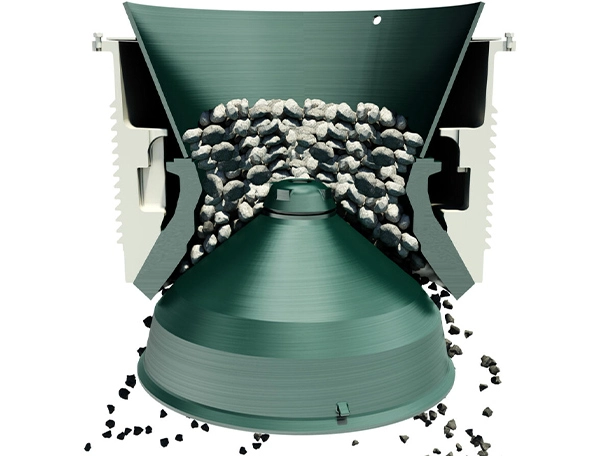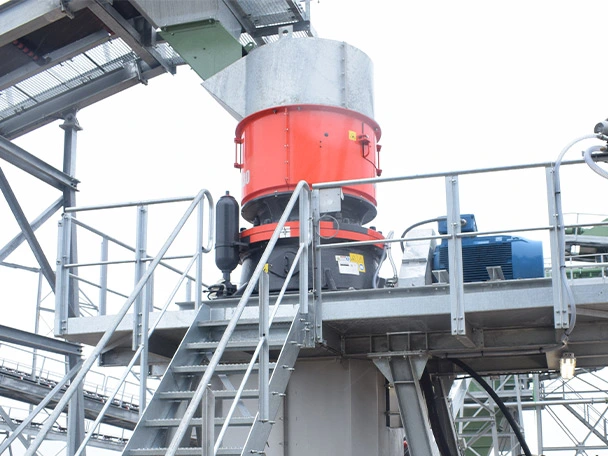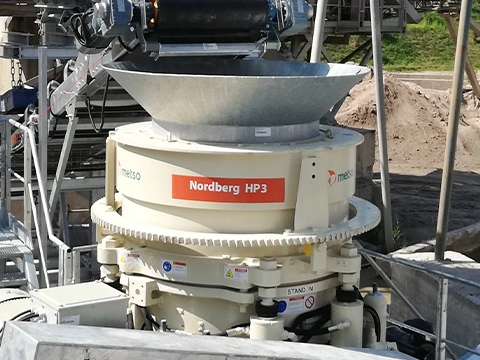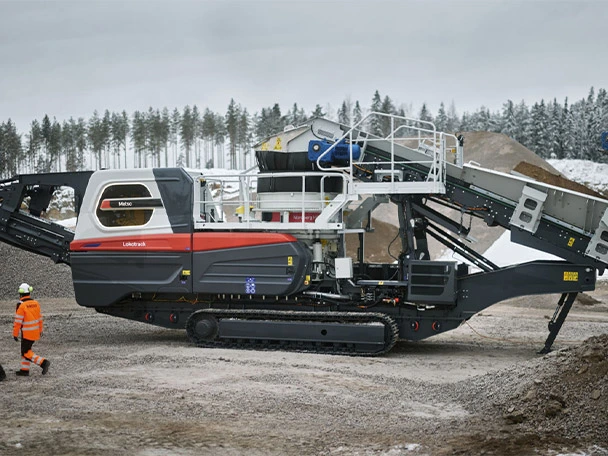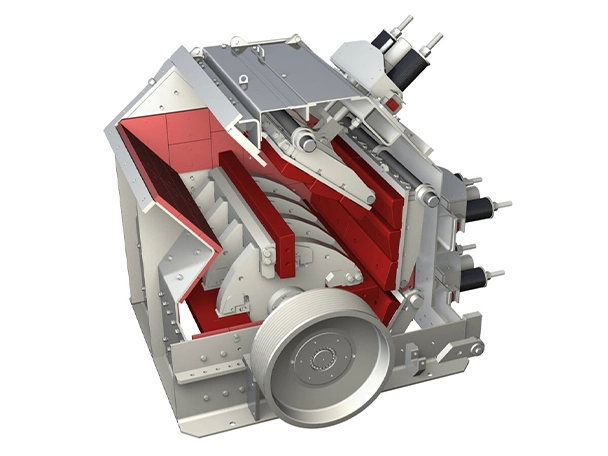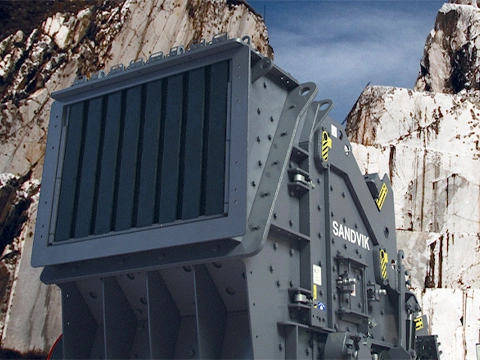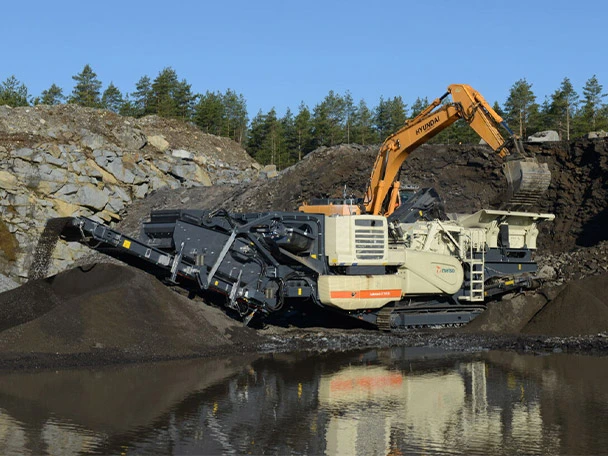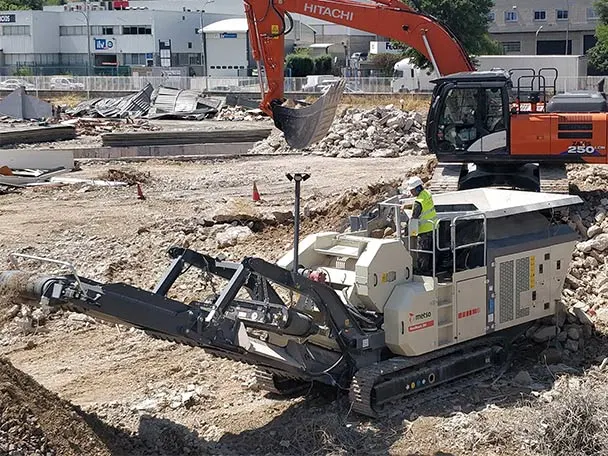Crushers That Solve All Tasks Confidently
Important notice
The brands we serve, differ from country to country
we distribute Metso mobile crushers. Metso offers the most comprehensive know-how for cost-effective crushing of hard and abrasive rock. To date, the company has supplied well over 15,000 crushing and screening plants to contractors, quarries, mining, demolition, and recycling operations. In Germany we distribute Metso’s mobile range only and also have a large fleet of rental machines available.
we distribute Metso's stationary and mobile crushers.
In Belgium, the Netherlands and Luxemburg
we are a distributor of Sandvik’s stationary crushers. Just like Metso, Sandvik is a trusted brand by many companies.
Several types of crushers are available, each designed for specific purposes and applications
Cone crusher
The cone crusher is widely used for secondary and tertiary crushing. It compresses material between a mantle and concave to produce finer particles, making it ideal for aggregate production and mineral processing. Cone crushers are essential in the mining and construction industries for breaking down large rocks into smaller, more manageable pieces.
Key benefits of a cone crusher
A key advantage of cone crushers is their versatility. Suitable for various applications, including secondary and tertiary crushing, they can also be integrated into mobile crushing plants, making them a valuable asset for a wide range of projects.
Jaw crusher
Jaw crushers, in which material is crushed between jaws, are essential for breaking down hard materials into smaller, manageable sizes. Known for their durability and efficiency, these crushers handle heavy-duty tasks with ease, making them ideal for primary crushing.
Key benefits of a jaw crusher include
- their high crushing ratio and reliability
- ability to handle various material types and hardness levels
This versatility makes jaw crushers a staple in mining, construction, and recycling applications.
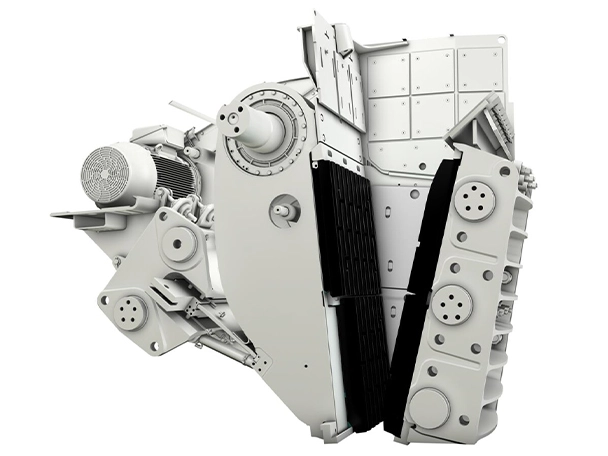
Impact crusher
One of the most commonly used crushers is the impact crusher, which utilizes the principle of impact crushing to reduce the size of rocks. This type of crusher is ideal for processing materials with high hardness and abrasiveness, making it suitable for use in mining and recycling operations. Impact crushers are designed to crush a variety of materials, including rocks, concrete, and asphalt. They operate by throwing the material against a hard surface, causing it to break into smaller pieces. This crushing method is highly effective in producing uniform and cubical-shaped end products. In addition, mobile crushers can be easily transported to different job sites, allowing for on-site crushing and recycling of materials. This not only reduces transportation costs but also minimizes the environmental impact of the operation.
Benefits of using an impact crusher
One of the main benefits of using an impact crusher is its ability to produce a high-quality, uniform end product. Unlike some other crushers, such as cone crushers, impact crushers produce a more consistent shape and size of the final product, which is important for many construction and mining applications. Another advantage of impact crushers is their versatility. They can be used to crush both hard and soft materials, making them suitable for a wide range of applications. Additionally, impact crushers can be equipped with different crusher screens to control the size of the output material, allowing for greater flexibility in product specifications.
Gyratory crusher
Gyratory crushers are robust machines ideal for primary crushing in mining and heavy-duty applications. They offer high capacity, efficient size reduction, and consistent product shape, handling large, abrasive materials with ease. With their stable design, they deliver reliable performance over time, requiring less maintenance than other crusher types. Their crushing chamber provides a continuous feed, enhancing productivity and reducing downtime. They have a different crusher head as normal cone crushers and are used for larger rocks.
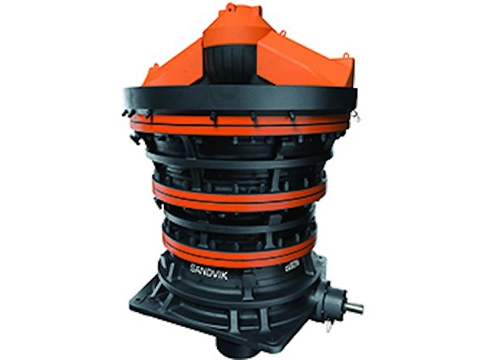
Sandvik CG820i gyratory crusher
Stationary versus mobile crushers
Stationary crushers are ideal for long-term projects in fixed locations, such as quarries or large-scale industrial sites, where high-capacity and stability are key. They offer robust performance but no mobility.
Mobile crushers, on the other hand, are best suited for projects requiring frequent relocation, such as road construction or smaller sites, offering quick setup and adaptability.
The choice between stationary and mobile depends on the project’s scale, location stability, and need for mobility.
